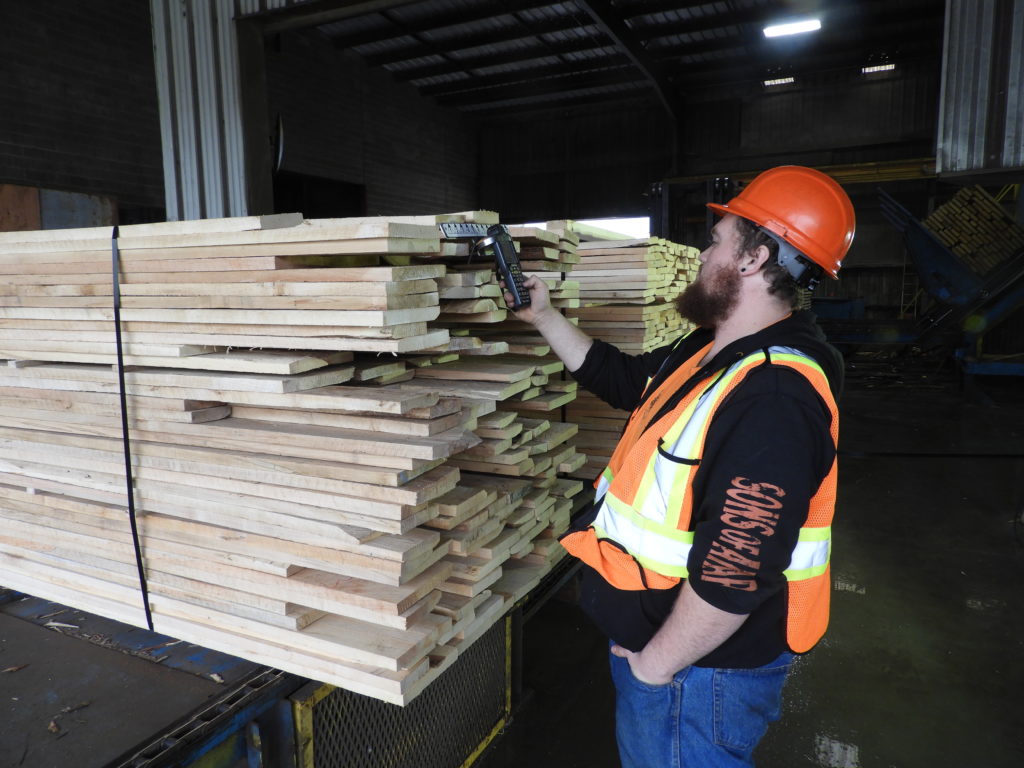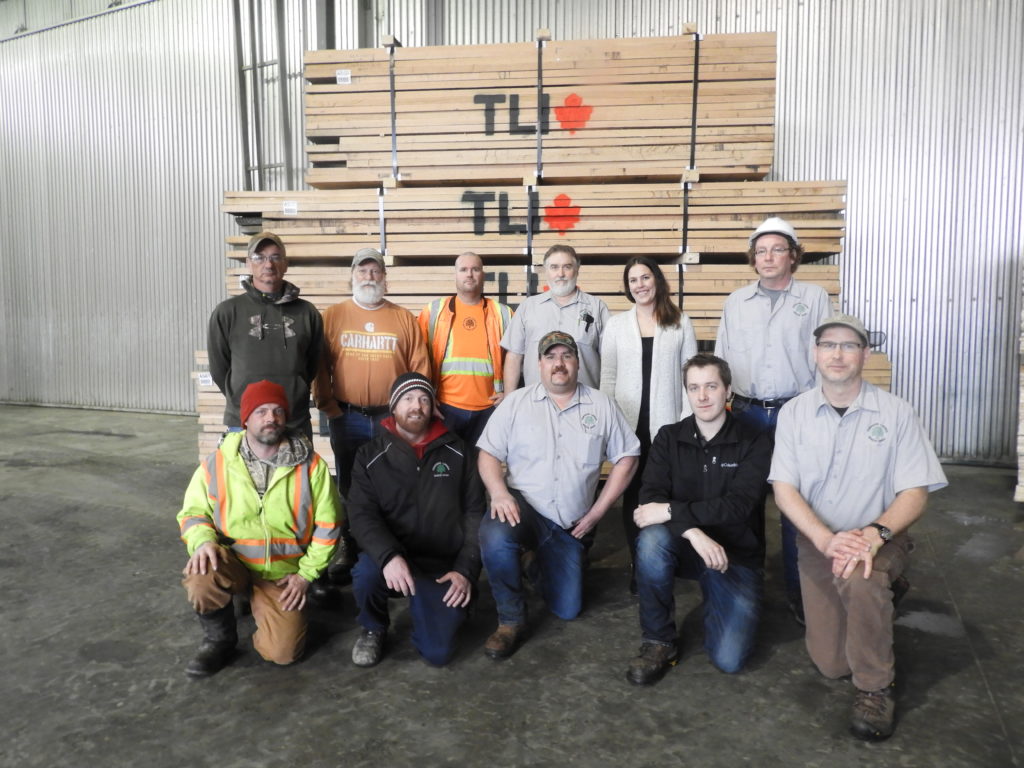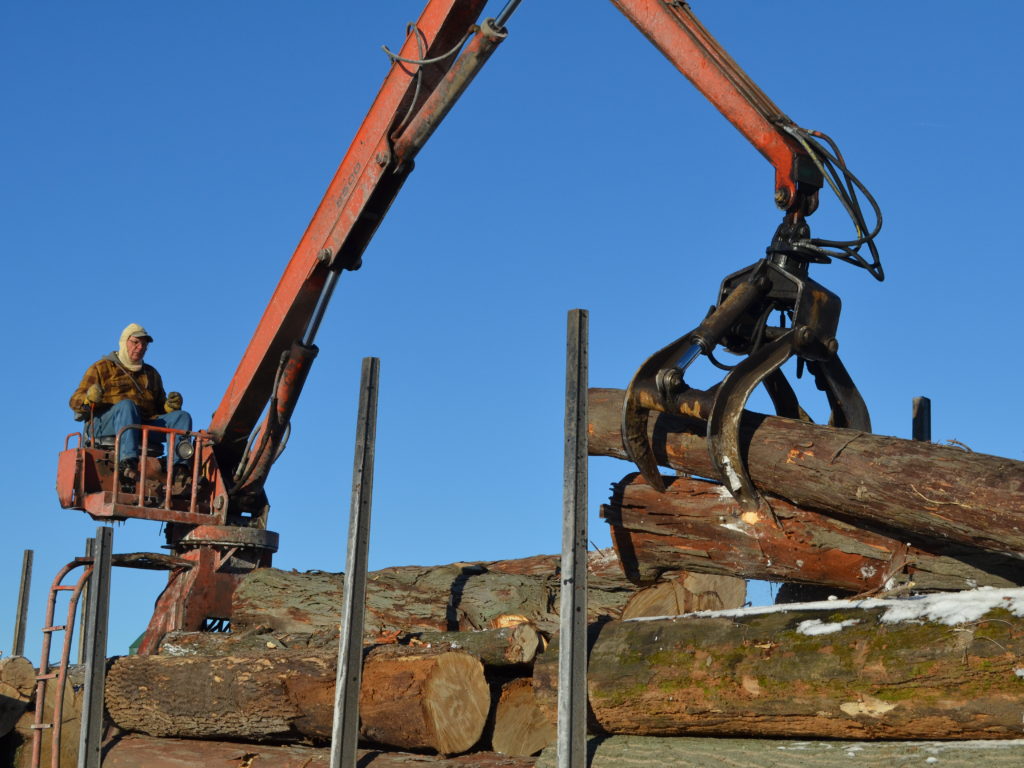Sawmill Careers at Townsend Lumber:
Welcome to the Family
Thank you for considering a career with Townsend Lumber!
Our employees are our greatest asset. Their passion, experience and innovative resolve have all contributed to keeping our business moving forward. We are committed to providing a safe, healthy work environment by arming our workforce with the latest knowledge in industry best practices.
Opportunities for career development allow you to evolve and reinvent your role, ensuring that Townsend Lumber stays ahead of the competition with every pass of the saw. Apply today for a fast-paced, rewarding career in the forestry industry, and become the latest member of the Townsend Lumber family.
Townsend Family Values
Townsend Lumber has been family-owned-and-operated for three generations. We are dedicated members of the community who celebrate our roots at every turn and welcome new members into the fold with open arms.
We believe families are stronger the more they communicate. To that end, Townsend Lumber embraces an open-door policy where thoughts, questions and concerns are treated with the compassion and respect they deserve.
Families are made up of people who accept one another and work to maintain healthy relationships. We recognize that our differences are just as important as our similarities.
We want future generations continuing to treat the natural world with care and respect. Townsend Lumber has adopted a mindful approach to sustainable forestry, committed to conserving biodiversity, enhancing/protecting wildlife habitats and watersheds, as well as reducing the build-up of greenhouse gases.
Innovation is a large part of what has made Townsend Lumber what it is today. For our company to continue evolving we keep our eyes, ears and minds peeled for fresh, exciting ideas that will propel us further along the path of success.
Staff. Team. Family. At Townsend Lumber, these words are infused with a sense of integrity and loyalty from those who understand no one gets anywhere alone. For us, teamwork isn’t some empty buzzword, it’s been a mainstay of our success for the past 60 years.
Integrity is in Our Nature
-
Over 175 employees from local communities
-
Family owned & operated for over 60 years
-
Dozens of employees with 20-30+ years at Townsend Lumber
-
Great opportunities for promotion and job growth
Forestry and Sawmill Trade Jobs
If you love the great outdoors, then a job in the forestry and sawmill sector is for you!
We hope you will consider joining our team.
Here are just a few Forestry and Sawmill Trade Jobs that Townsend Lumber relies upon. Our company believes in promoting from within and provides training for all positions to individuals who demonstrate interest, dedication and capability.
A log buyer procures timber by sourcing, negotiating prices, and purchasing logs from private
landowners to meet the company’s production needs. Their role involves assessing timber quality,
managing relationships, overseeing log delivery and inventory, and ensuring compliance with
environmental regulations and market trends.
A lumber grader visually inspects lumber for defects like knots and holes, classifies it based on
quality, strength, and other industry standards, and then marks it with a grade stamp. An NHLA
(National Hardwood Lumber Association) lumber grader is a professional who inspects and sorts
North American hardwood lumber according to the appearance-based grading rules of the National
Hardwood Lumber Association. This process ensures consistent quality and value for both buyers
and sellers in the hardwood lumber trade.
A tree marker is a professional who uses paint or other markings to designate trees for harvesting or
to be left standing, based on a forest management plan. Their job involves making “cut and leave”
decisions for individual trees to ensure the long-term health, sustainability, and productivity of the
forest. Key factors in their decisions include a tree’s growth, health, potential, ability to produce
seed, and benefits to wildlife.
Log truck drivers transport logs from forests to mills by operating heavy-duty trucks. Their
responsibilities include inspecting and maintaining their trucks, securing log loads, and navigating
challenging roads in various weather conditions. They also handle logistics, maintain detailed
records, and follow strict safety protocols.
Heavy equipment operators at the sawmill move the logs from the log yard to the mill where it will
be cut. Their responsibilities include operating machines such as wheel loaders, forklifts, debarker
machines, etc. as well as performing safety checks, routine maintenance, and minor repairs to ensure
the equipment is in good working order.
Sawmill maintenance workers install, maintain, and repair machinery to ensure the smooth, safe,
and efficient operation of the mill. Their duties include performing preventive maintenance,
troubleshooting and fixing mechanical and electrical issues, replacing parts like chains and belts, and
welding. They also assist with the installation and upgrading of new equipment and are responsible
for safety compliance and keeping the work environment organized.
A saw filer is a skilled tradesperson who maintains, sharpens, and repairs industrial saw blades,
such as circular and band saws, to ensure optimal performance and safety in sawmills and wood
processing. Key responsibilities include operating and calibrating filing room equipment, inspecting
blades for defects, welding cracked blades, and maintaining proper tension and tooth shape. This
role requires strong mechanical skills, meticulous attention to detail, and the ability to work in a
physically demanding environment.
A kiln operator controls and monitors the dry kilns that dry lumber. Their duties include setting
up and calibrating the kiln, adjusting and monitoring temperature and humidity, performing
maintenance, and assessing the finished product for quality.
An operations manager oversees a company’s day-to-day activities to ensure efficiency and
profitability by supervising staff, managing resources, and improving processes. Their responsibilities
span strategic planning, process optimization, budget management, and the supervision of
employees and departments like supply chain, finance, and human resources. They are focused on
making sure operations run smoothly, align with company objectives, and are cost-effective.



